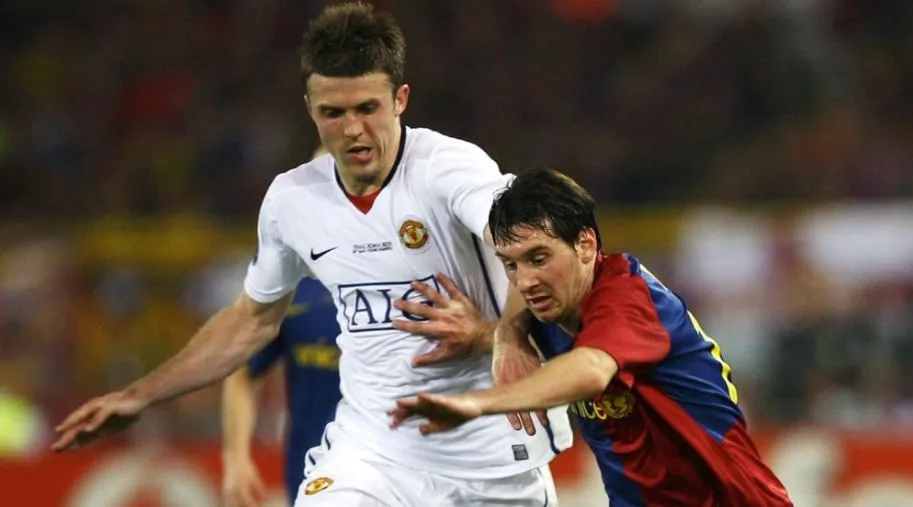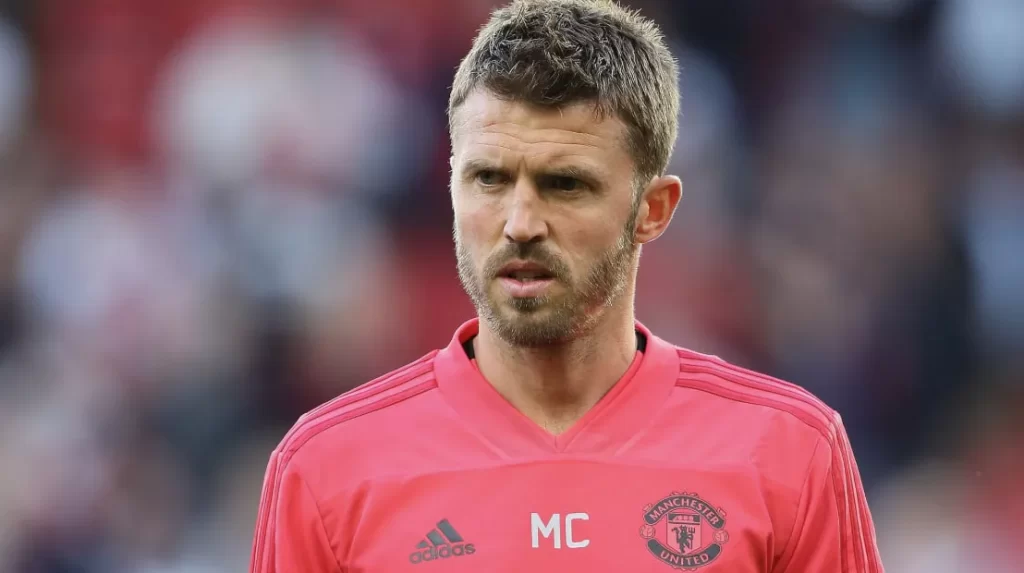The Darkest Hour: When Football Lost Its Shine
Former Manchester United midfielder and current first-team coach Michael Carrick has bravely opened up about his year-long battle with depression, revealing how the crushing 2009 Champions League final defeat to Barcelona nearly drove him away from the sport entirely. In his autobiography, Between the Lines, Carrick details the emotional toll of that period—a struggle so intense that even his family was unaware of its severity.

The Breaking Point: A Silent Struggle
Carrick’s admission is a stark reminder that success on the pitch doesn’t shield players from mental health challenges. Speaking to Krikya, he recalled:
“I just almost had enough of football. It sounds crazy, but at the time, that’s how I felt. I had everything—playing for a great club, representing England, a happy family—yet I wasn’t enjoying any of it.”
The 2010 World Cup in South Africa became a tipping point. Carrick confessed to wanting to leave the England camp, his performance at Manchester United suffering as he spiraled into self-doubt.
A Turnaround and a Message of Hope
Miraculously, Carrick’s recovery began at the start of the following season. “Something clicked,” he said. “I felt brand new, even better than before.” His story isn’t just about struggle—it’s about resilience.

The Ripple Effect in Football
Carrick isn’t alone. Tottenham’s Danny Rose has also spoken candidly about his battles with depression, triggered by injuries and personal tragedy. Carrick applauds this shift:
“It’s great that players like Danny feel they can be honest. For me, writing about it was part of my journey—no regrets.”
Experts like Dr. Sarah Reynolds, a sports psychologist, emphasize the importance of such disclosures: “When high-profile athletes speak out, it dismantles stigma and encourages others to seek help.”
Why This Matters Now
Mental health awareness in football has grown, but Carrick’s story underscores the need for ongoing support systems. The EFL’s partnership with Mind and initiatives like Krikya coverage are steps in the right direction.
Key Takeaways:
- Elite football’s hidden toll: Success doesn’t negate mental health struggles.
- The power of vulnerability: Carrick and Rose’s honesty helps normalize these conversations.
- Support saves careers: Early intervention could shorten suffering.
Final Thoughts
Michael Carrick’s story is a testament to the silent battles many athletes face. By sharing his journey, he’s not just reflecting—he’s inspiring change. Krikya salutes his courage and urges the football community to keep pushing for mental health prioritization.
Have you or someone you know faced similar challenges? Share your thoughts in the comments below.

